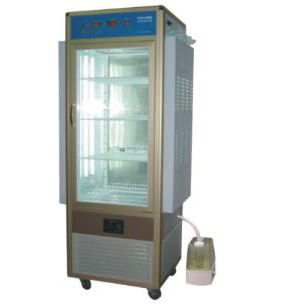
Privacy statement: Your privacy is very important to Us. Our company promises not to disclose your personal information to any external company with out your explicit permission.
86-510-86834411
At present, the scale of animal husbandry in China is continuously expanding. Under this background, it is also necessary to use artificial climate incubators to strengthen forage cultivation and achieve large-scale cultivation. In pasture varieties, “King bamboograss” is known as a multi-function forage grass. This forage grass is a high-yield and high-quality forage grass that was developed through the cross between elephant grass and Pennisetum americana. Its root system is developed, its leaves are tender and juicy, and its nutritional value is high. With wide palatability, high yield, and strong regenerative ability, it is the best feed for all kinds of livestock, poultry and fish. In addition, the investment in Huangzhucao is less, the effect is quicker, the ability to retain water and soil is strong, and the economic efficiency is high. It plays an extremely important role in afforestation of barren mountains and farmers' income increase.

In order to determine the adaptability of the planting of Phyllostachys praecox to the environment and provide scientific basis for its large-scale promotion and planting, it is necessary to do a work in the localities to use the artificial climate incubator to study the environment of the plant The adaptability, here through the use of artificial climate incubator in the herb grass "Kitake grass" cold resistance research, to briefly explain the forage grass "Kirsus grass" adaptability to the temperature environment.
In the experiment, the artificial climate incubator mainly played the role of simulating the natural climatic environment. The experiment process was to take 18 different species of imperial bamboo and cultivated in an artificial climate incubator. The temperature of the incubator was set at 18°C. At 15°C, 12°C, 10°C, 8°C, 7°C, 6°C, 5°C, and 4°C, they were successively decreased, and the growth of the plants of Pennisetum japonicum under different temperature gradients was observed. Studies have shown that 3,8,14 No. grows at 7°C; No. 1, 5, 12, and 15 stop growing at 6°C; 2, 4, 7, 9, 11, 16, and 18 stop growing at 5°C, 6, 10 , 13, 17 stop growing at 4°C; 5, 9 and 14 die at 2°C; 1, 8, 11 and 12 die at 0°C; and survive at -2°C 6, 10, 13, and 17. The test results showed that the plants of No. 6, 10, 13 and 17 were highly resistant to cold, suitable for planting at high altitudes by asexual reproduction, while other plants were suitable for planting at low altitude by asexual reproduction.
July 03, 2023
July 03, 2023
July 03, 2023
July 03, 2023
June 18, 2022
June 08, 2022
이 업체에게 이메일로 보내기
July 03, 2023
July 03, 2023
July 03, 2023
July 03, 2023
June 18, 2022
June 08, 2022

Privacy statement: Your privacy is very important to Us. Our company promises not to disclose your personal information to any external company with out your explicit permission.

Fill in more information so that we can get in touch with you faster
Privacy statement: Your privacy is very important to Us. Our company promises not to disclose your personal information to any external company with out your explicit permission.